Kia Ceed Sportswagon vs Toyota C-HR - Differences and prices compared
Compare performance (140 HP vs 223 HP), boot space and price (24300 £ vs 29100 £ ) at a glance. Find out which car is the better choice for you – Kia Ceed Sportswagon or Toyota C-HR?
Costs and Efficiency:
When it comes to price and running costs, the biggest differences usually appear. This is often where you see which car fits your budget better in the long run.
Kia Ceed Sportswagon has a somewhat advantage in terms of price – it starts at 24300 £ , while the Toyota C-HR costs 29100 £ . That’s a price difference of around 4800 £.
Fuel consumption also shows a difference: Toyota C-HR manages with 0.80 L and is therefore clearly more efficient than the Kia Ceed Sportswagon with 6 L. The difference is about 5.20 L per 100 km.
Engine and Performance:
Power, torque and acceleration say a lot about how a car feels on the road. This is where you see which model delivers more driving dynamics.
When it comes to engine power, the Toyota C-HR has a noticeable edge – offering 223 HP compared to 140 HP. That’s roughly 83 HP more horsepower.
In acceleration from 0 to 100 km/h, the Toyota C-HR is noticeable quicker – completing the sprint in 7.40 s, while the Kia Ceed Sportswagon takes 9.70 s. That’s about 2.30 s faster.
In terms of top speed, the Kia Ceed Sportswagon performs hardly perceptible better – reaching 197 km/h, while the Toyota C-HR tops out at 180 km/h. The difference is around 17 km/h.
Space and Everyday Use:
Whether family car or daily driver – which one offers more room, flexibility and comfort?
Both vehicles offer seating for 5 people.
In curb weight, Kia Ceed Sportswagon is a bit lighter – 1335 kg compared to 1505 kg. The difference is around 170 kg.
In terms of boot space, the Kia Ceed Sportswagon offers clearly perceptible more room – 625 L compared to 447 L. That’s a difference of about 178 L.
In maximum load capacity, the Kia Ceed Sportswagon performs evident better – up to 1545 L, which is about 390 L more than the Toyota C-HR.
When it comes to payload, Kia Ceed Sportswagon slightly takes the win – 485 kg compared to 425 kg. That’s a difference of about 60 kg.
Who comes out on top?
Overall, the Toyota C-HR shows itself to be wins the duel decisively and secures the title of DriveDuel Champion.
It convinces with the more balanced overall package and proves to be the more versatile choice for everyday use.

Toyota C-HR
Costs and Consumption
View detailed analysis
Engine and Performance
View detailed analysis
Dimensions and Body
View detailed analysis
Kia Ceed Sportswagon
The Kia Ceed Sportswagon is a sensible and surprisingly stylish family wagon that turns daily chores into a bit less of a grind. Practical, comfortable and packed with thoughtful touches where they matter, it’s a smart choice for buyers who want usefulness without sacrificing personality.
details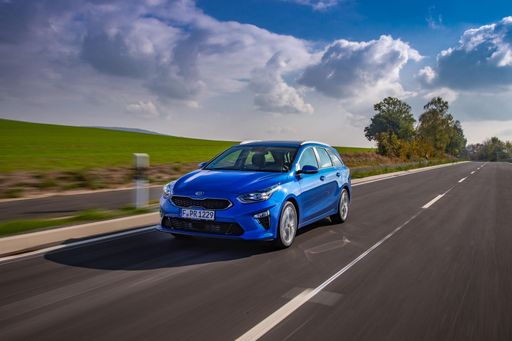
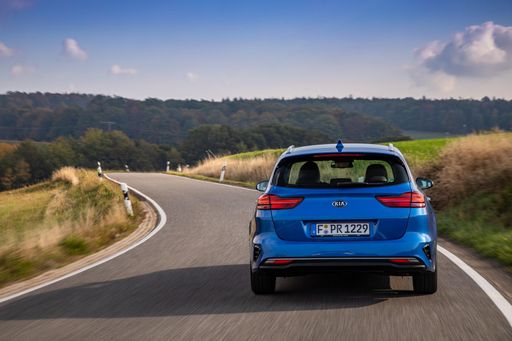
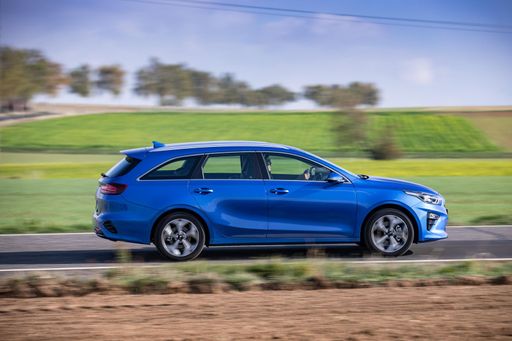
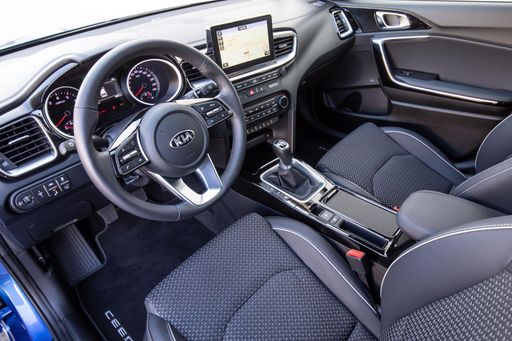
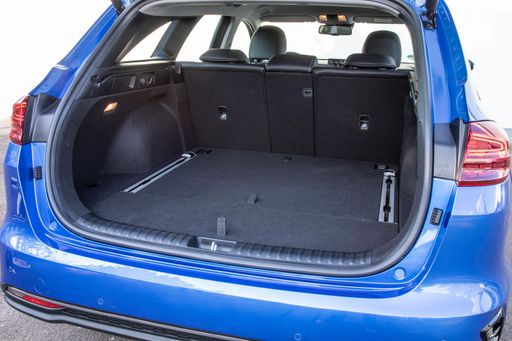
Toyota C-HR
The Toyota C-HR cuts a striking figure with its angular styling and coupe-like profile, so you’ll never go unnoticed in the supermarket car park. It balances everyday practicality with a nimble, city-friendly personality, making routine commutes feel a touch more fun without asking for forgiveness.
details




Costs and Consumption |
|
|---|---|
|
Price
24300 - 29100 £
|
Price
29100 - 42800 £
|
|
Consumption L/100km
6 - 6.4 L
|
Consumption L/100km
0.8 - 5.1 L
|
|
Consumption kWh/100km
-
|
Consumption kWh/100km
-
|
|
Electric Range
-
|
Electric Range
68 km
|
|
Battery Capacity
-
|
Battery Capacity
-
|
|
co2
137 - 146 g/km
|
co2
17 - 115 g/km
|
|
Fuel tank capacity
50 L
|
Fuel tank capacity
43 L
|
Dimensions and Body |
|
|---|---|
|
Body Type
Estate
|
Body Type
SUV
|
|
Seats
5
|
Seats
5
|
|
Doors
5
|
Doors
5
|
|
Curb weight
1335 - 1437 kg
|
Curb weight
1505 - 1755 kg
|
|
Trunk capacity
512 - 625 L
|
Trunk capacity
350 - 447 L
|
|
Length
4605 mm
|
Length
4362 mm
|
|
Width
1800 mm
|
Width
1832 mm
|
|
Height
1422 mm
|
Height
1558 - 1564 mm
|
|
Max trunk capacity
1545 L
|
Max trunk capacity
1076 - 1155 L
|
|
Payload
455 - 485 kg
|
Payload
375 - 425 kg
|
Engine and Performance |
|
|---|---|
|
Engine Type
Petrol, Petrol MHEV
|
Engine Type
Full Hybrid, Plugin Hybrid
|
|
Transmission
Automatic, Manuel
|
Transmission
Automatic
|
|
Transmission Detail
Dual-Clutch Automatic, Manual Gearbox
|
Transmission Detail
CVT
|
|
Drive Type
Front-Wheel Drive
|
Drive Type
Front-Wheel Drive, All-Wheel Drive
|
|
Power HP
100 - 140 HP
|
Power HP
140 - 223 HP
|
|
Acceleration 0-100km/h
9.7 - 13.5 s
|
Acceleration 0-100km/h
7.4 - 9.9 s
|
|
Max Speed
197 km/h
|
Max Speed
175 - 180 km/h
|
|
Torque
172 - 253 Nm
|
Torque
-
|
|
Number of Cylinders
3 - 4
|
Number of Cylinders
4
|
|
Power kW
74 - 103 kW
|
Power kW
103 - 164 kW
|
|
Engine capacity
998 - 1482 cm3
|
Engine capacity
1798 - 1987 cm3
|
General |
|
|---|---|
|
Model Year
2024
|
Model Year
2024 - 2025
|
|
CO2 Efficiency Class
E
|
CO2 Efficiency Class
C, B
|
|
Brand
Kia
|
Brand
Toyota
|
Is the Kia Ceed Sportswagon offered with different drivetrains?
The Kia Ceed Sportswagon is available as Front-Wheel Drive.




